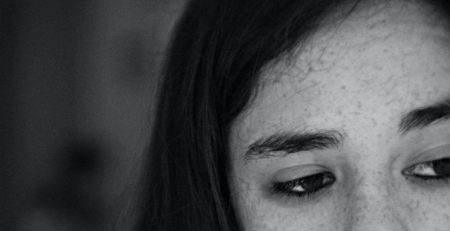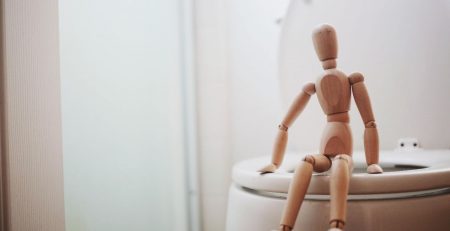Canada has one of the highest rates of multiple sclerosis (MS) in the world, with an estimated 1 in every 385 Canadians living with the disease. While it is most often diagnosed in young adults aged 20 to 49, younger children and older adults are also diagnosed with the disease.
What is Multiple Sclerosis (MS)?
Multiple sclerosis (MS) is an autoimmune disease of the central nervous system (brain, spinal cord). The disease attacks myelin, the protective covering of the nerves, causing inflammation and often damaging the myelin. Myelin is necessary for the transmission of nerve impulses through nerve fibres. When the myelin is damaged, the neurological pathway is blocked and the brain loses its ability to relay information to the body.
MS is unpredictable and can cause symptoms such as extreme fatigue, lack of coordination, weakness, tingling, impaired sensation, vision problems, bladder problems, cognitive impairment and mood changes. Currently there is no cure for MS but there are many things that can be done to slow down and reverse the symptoms of MS.
Exercise in combination with Zhu’s scalp acupuncture is an effective treatment to reverse the symptoms of MS.
Why should we exercise?
Exercise is good for everyone, but when you have MS, it is imperative to incorporate exercise in your everyday activity. This seems like the opposite of what your body wants to do, as it may be fatigued, stiff and in pain, but research shows that exercise can help manage or even alleviate various symptoms.
Use it or lose it! In order to create new pathways and strengthen neural connection, the brain has to recognize the need for its use. Exercising can help activate these connections and help improve strength, balance and even improve your mood. Everyone experiences MS differently therefore each person should be assessed professionally to see which method of exercise would best benefit his or her condition. Exercise should be modified as the needs of the individual change.
So what is the best exercise for MS?
- Aerobic exercise: Aerobic exercise is anything that elevates the heart rate and gets the blood circulating throughout the body. One should be getting in 150 minutes of moderate intensity aerobic activity a week and should be done in at least 10 minute intervals. Aerobic exercise can be anything from walking, riding a bicycle or even doing house chores around the house.
- Stretching: Stretching is the best way to maintain range of motion and help relieve muscle tightness or stiffness and help with symptoms of spasticity.
- Strength Training: Strength or resistance training should be done at least twice a week and can help to build and maintain strength.
- Rehabilitation of lost motor function: Depending on the stage of the progression and the pathway that has been damaged, patients will exhibit different areas and different degrees of functional loss. Intervention at the earliest stage will result in best prognosis and patients may even live symptom free. Even if the disease has progressed, it is possible to restore the lost function. The key is to stimulate the acupuncture zones that connect to where the neural pathways that have been damaged are in combination with rehabilitation exercises. At Complete Balance, not only have we seen patients improve in their movement and function, but they were able to maintain their progress over time.
In conclusion
It will be important for those with MS to recognize and listen to the state of their body. Exercises that are too exhaustive or aggressive may cause severe fatigue or injury and may increase symptoms rather than alleviate it. It is also important to manage the body’s temperature as it may experience different symptoms as the core body temperature rises. It is better to take a gentler approach and exercise at a moderate intensity than to overdo it. If you have MS, check with one of our therapists to see what treatment combination would be best for you.
Although research shows little evidence that exercise alone or acupuncture alone will delay the progression of MS, treatments that combine both personalized exercise and acupuncture, specifically Zhu’s scalp acupuncture, can help to restore lost function and improve one’s quality of life free from the disease.
External resources:

10% off Restorative Formula – Yan Xue Zhuang Jin Jian Bu Wan – is a versatile tonic that addresses mild to moderate symptoms of deficiency. This formula not only moves blood and qi, but also focuses on supplementing qi, blood, yin, and yang. This makes it ideal for patients whose presentation is more related to deficiency than stasis. The balanced nature of the formula allows it to transform damp without damaging yin, thus making it ideal as a general tonic for degenerative condition

Deborah Kim (CPT, BA)
Deborah graduated with specialized honours in Kinesiology at York University and further obtained her certification as a Personal Trainer at the Canadian Society of Exercise Physiology. She then went on to work in the fitness industry for over 10 years with a wide demographic of clients. Through her programs, she deals with body awareness, strength training, weight loss and functional rehabilitation in order to help individuals reach their health goals.
Want to learn more? Book a free consultation with our psychotherapists! You can email us at info@mycompletebalance.com or call us at 416-901-2873.













Comment (1)
After an MRI I was diagnosed with MULTIPLE SCLEROSIS. After years on medications, symptoms worsened with tremors on my right hand, numbness and tingling, muscle weakness, and loss of speech. Fortunately last year, I learned about Health Herbs Clinic and their Multiple Sclerosis alternative treatment (https://mycompletebalance.com), the Multiple Sclerosis treatment made a great difference, and most of my symptoms including tremors, weakness, and others gradually disappeared. I improved significantly over the 6 months of treatment, it’s been a year since the treatment, and I have no symptoms. I have a very good quality of life and a supportive family!